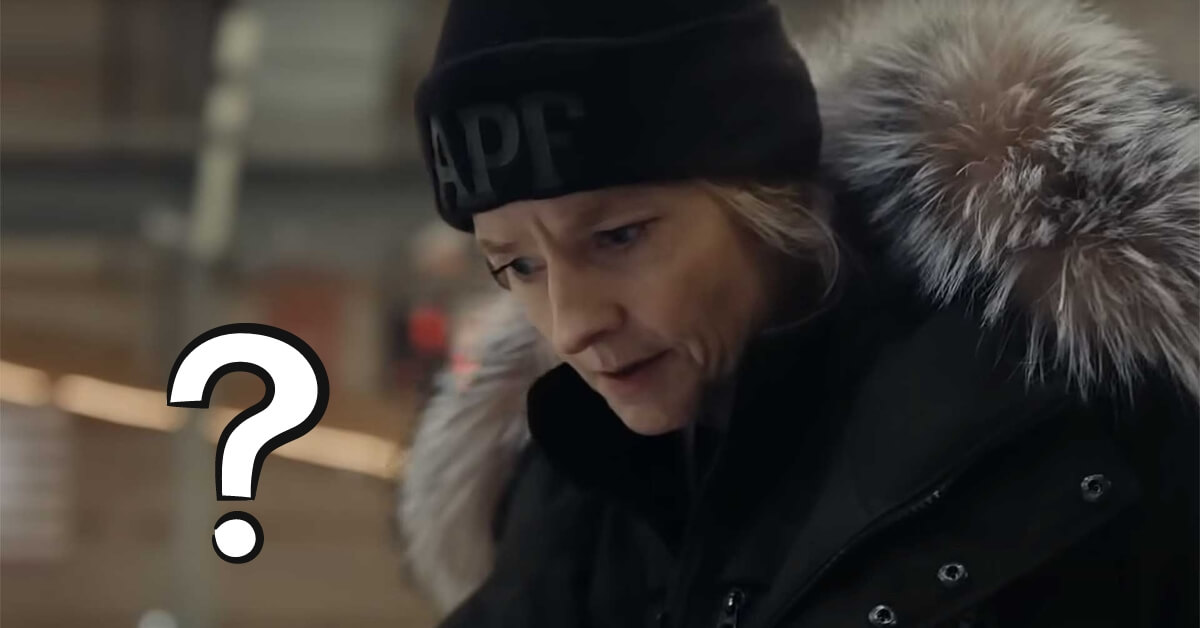Put on your thinking caps, we are about to dive into the deep, dark abyss of a mystery that has tied our tongues as well.
In the shadowy corners of HBO’s True Detective: Night Country, a chilling enigma unfurled that had viewers on the edge of their seats. The series, known for its intricate plots and deep dives into the human psyche, once again delivered a tale as compelling as it was cryptic.
At the heart of this season’s mystery was the severed tongue of Annie K, an enigma that propelled the narrative and left fans pondering the true depths of darkness that human actions can reach.
But why did this particular piece of evidence become so crucial, and what does it symbolize in the dark narrative of the show?
Annie’s tongue was symbolic of her silence. Annie discovers that a group of scientists are using unethical means and are “Poisoning Ennis.” These menacing scientists stab Annie multiple times, and the last backstabbing comes from her own boyfriend, smothering her to death, who is also one of the scientists. The story slowly unravels that these are the same scientists who went missing from the Tsalal Center.
What Was the Tongue in True Detective? Who Cut Out Annie’s Tongue?
True Detective: Night Country thrusts its audience into a cold and desolate landscape, where the discovery of Annie K’s tongue on the kitchen floor of the Tsalal Arctic Research Center sets a chilling investigation in motion.
This singular piece of evidence suggested foul play of a most sinister nature, a crime that spoke of untold stories and secrets buried deep within the ice.
The finale hinted at Hank Prior’s involvement in moving Annie’s body, perhaps even in the act of cutting out her tongue.
However, the series leaves room for interpretation, inviting viewers to ponder the motivations behind such a gruesome act and its implications for understanding the characters and their actions.
Is Navarro Dead At The End Of True Detective?
Evangeline Navarro’s fate remains shrouded in ambiguity, a fitting end for a series that delights in the mystical and the mundane. Her journey through grief, identity, and redemption suggests a character forever changed by the events of “Night Country,” alive or not in the conventional sense.
Unanswered Mysteries and the Call to the Audience
The finale of True Detective: Night Country ties up many loose ends, yet the mystery of Annie K’s tongue remains a compelling puzzle.
Was it a message from beyond, a cruel token of silence, or a clue left by someone with a deeper understanding of the crimes at the Tsalal Arctic Research Center?
The series creator, Issa López, invites viewers to draw their own conclusions, offering a Rorschach test that reveals more about the audience than it does about the plot.
She explains how the series has blossomed from a murder mystery to an understanding of the moral compass and the ethics of science.
“You have eight missing men, and you have a human tongue on the floor. It had those elements, and it would be boring that it’s some other guy — so it had to be a woman. Because of the area I was working in, it was a perfect opportunity to talk about murdered and missing Indigenous women.”
She further elaborates–
“Started piecing together: I understand that the men were implicated in the death of this woman. In what shape? I still didn’t know. The motivation, I still didn’t understand, but I knew it happened then. So it came to reason that what takes them at the end is a result of what happened with that woman.”
Ultimately, True Detective: Night Country challenges us to consider the stories we tell and the ones we choose to believe.
What truths lie hidden in the silence of the unspoken? How do the stories of the silenced continue to shape our understanding of the world?
As the credits roll, these questions linger, inviting us to ponder, share, and perhaps even seek out the answers in the shadows of our own stories. What’s your take?


